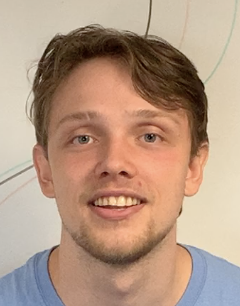Education
PhD in Computer Science; RIET Lab under Professor Shiri Dori-Hacohen
University of Connecticut, 2021 - Current
- Built pipeline for on-premises twitter data-lake that is used for ad-hoc investigations into disinformation.
- Devised a language model optimization scheme for Claim-Matching that assists our non-profit fact-checking partner Meeden that also placed first in CLEF CheckThat! 2022 Competition [1]. Open sourced pytorch codebase for freeuse and reproducibility,
- Currently researching argumentation-based tasks like Claim Extraction and Relation Classification to further enhance automated campaign classification and detection.
B.S. in Computer Engineering & Applied Mathematics
University of Massachusetts Amherst, 2014 - 2018
INDUSTRY
Amazon.com; Alexa org - Software Developer Engineer II (L5)
Summer 2020 - Summer 2021
- Designed data pipelines and service architectures while articulating them to peers and managers in open forum reviews
- Led project to rewrite an open source BI tool to handle Red/Critical data in a secure and scalable fashion
- Worked with customers to determine and build dashboarding functionalities that would save them dev time
- Developed and maintained internal services needed for research scientists to efficiently access and query Alexa data
Systems & Technology Research - Machine Learning Researcher
Spring 2018 - Summer 2020
KEY PROJECT: Group Dynamics
KEY PROJECT: Physically Realizable Attacks
KEY PROJECT: Middle East Event Detection
Skills
Nothing better to describe this section than a hodgepodge of concepts and tools I've used
Selected Courses
Natural Language Processing
•
Bayesian Statistics
•
Statistical Machine Learning
•
Statistical Decision Theory
•
Coding Theory
•
Probability & Stochastic Processes
•
Data Mining
•
Algorithms for Big Data
•
Information Ecosystem Threats
•
Partial Differential Equations
•
Software Intensive Engineering
•
Applied Scientific Computing
•
Data Structures & Algorithms
•
Discrete Structures
•
Abstract Algebra
•
Digital Signal Processing
UNDERGRAD
Single Cell RNA Sequencing Analysis
Independant Study - Spring 2018
- Participated in an Independent Study to use Hierarchical Poisson Factorization to learn latent embedding of cells
- Used clustering techniques to classify the weakly labeled data. Simulated in splatter, we evaluated these methods
Deep Learning for Hyperspectral Data Processing Research
REU - Summer 2017
- Participated in an Research Experience for Undergraduates (REU), learning and implementing Deep Learning algorithms in the fields of Computer Vision and Hyperspectral data processing using frameworks such as Tensorflow, Keras, and Caffe
- Studied effects of transfer learning on source and targets to try to analyze what allowed for best results
Numerical Eigensolver FEAST Research
REU - Summer 2016
- Participated in an REU working with the FEAST algorithm, a reduced system Eigensolver
- Learned new numerical iterative and direct techniques in solving eigenvalue problems
- Developed applications for the FEAST user to “tune” a specific interval and get a density of states for the eigenvalues
Hardware Verification and Logic Debugging Research
REU - Summer 2015
- Participated in an REU doing hardware verification and logic debugging of arithmetic circuits
- Transformed Boolean equations into pseudo-algebraic equations to analyze potentially bugged circuits
- Brainstormed new ideas to find the origin of Boolean 0-equivalent residuals
Text Detoxifier
Project - Fall 2017
- Finds all versions of “f***” and replaces it with a word that is less explicit but retains sentences original meaning
- Programmed different models such as a Bag of Words approach, Multiclass Logistic Regression, clustering based off feature vectors, and a skip-gram with different length spans
- Annotated scraped data, and used simple active learning approach to maximize annotations impacts
Carvana Car-Masking Competition
Project - Summer 2017
- Participated in competition for creating a pixel mask determining where a car is in a picture
- Used models that combined concepts from Inception-Resnet and U-nets
- Pretrained on errors from previous model to transfer features on structured components not found in basic training
Base Run Application
Project - Fall 2016
- Developed an application in which users locally play a capture the flag type game using their mobile geolocations.
- Implemented the backend server side in C++ utilizing RPC’s to communicate with the java client
- Described deadlines and requirements for team as Development lead
